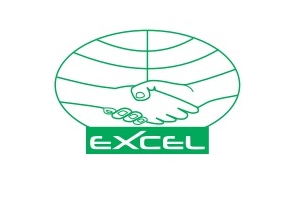Get A Quote
Get A Quote
+91

Home

Account

Get A Quote

About Us
Products
Materials
Contact Us
Connect with us
Get A Quote

Home

Account

Get A Quote

Stainless Steel UNS S30400 Valves are composed of an alloy mostly of iron, with 18 to 20 percent chromium and 8 to 10.5 percent nickel. It also contains trace amounts of manganese, sulfur, silicon, and nitrogen. The combination of components in the alloy creates a highly durable valve material that is resistant to corrosion and high temperatures, making it a preferred choice for chemical processing equipment and piping systems. Additionally, due to the high levels of chromium found in SS UNS S30400 Valves, they are much more abrasion-resistant than other metallic valve materials. Combining its strength and durability, it is easy to see why this type of alloy is popularly used in valves across various industries.
Stainless steel UNS S30400 valves, also known as 304-grade stainless steel valves, are renowned for their remarkable strength and durability. They feature excellent corrosion resistance even in harsh industrial environments such as seawater, making them ideal for marine and offshore applications. Additionally, they are non-magnetic and temperature resistant, meaning they can withstand high operating temperatures without losing structural integrity. 304-grade stainless steel valves are commonly used in chemical processing equipment due to the excellent protection they provide against oxidization caused by exposure to acids and other interference elements. Furthermore, they can be easily machined or formed into various shapes, enabling various complex system designs to be implemented with minimal difficulties.
Stainless Steel UNS S30400 Valves are composed of an alloy mostly of iron, with 18 to 20 percent chromium and 8 to 10.5 percent nickel. It also contains trace amounts of manganese, sulfur, silicon, and nitrogen. The combination of components in the alloy creates a highly durable valve material that is resistant to corrosion and high temperatures, making it a preferred choice for chemical processing equipment and piping systems. Additionally, due to the high levels of chromium found in SS UNS S30400 Valves, they are much more abrasion-resistant than other metallic valve materials. Combining its strength and durability, it is easy to see why this type of alloy is popularly used in valves across various industries.
Stainless steel UNS S30400 valves, also known as 304-grade stainless steel valves, are renowned for their remarkable strength and durability. They feature excellent corrosion resistance even in harsh industrial environments such as seawater, making them ideal for marine and offshore applications. Additionally, they are non-magnetic and temperature resistant, meaning they can withstand high operating temperatures without losing structural integrity. 304-grade stainless steel valves are commonly used in chemical processing equipment due to the excellent protection they provide against oxidization caused by exposure to acids and other interference elements. Furthermore, they can be easily machined or formed into various shapes, enabling various complex system designs to be implemented with minimal difficulties.









-1688635827661.webp)


No more suppliers available.
Website Banner